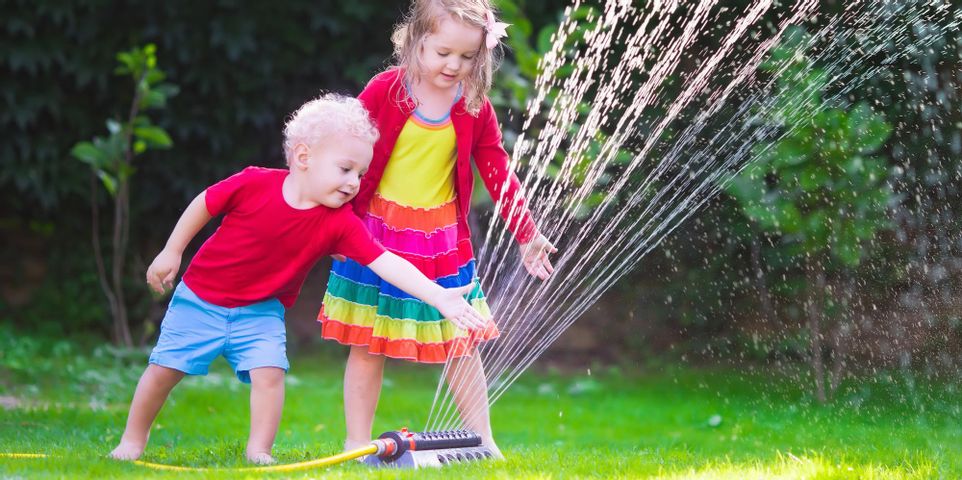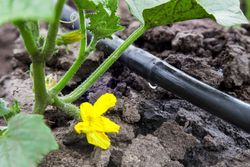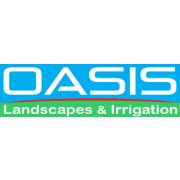A Guide to Irrigation Systems

Whether it be large yards or small gardens, watering any property requires meticulous care and attention. If you’re looking to ditch the difficult work of hoses and watering cans, you’ll want to install an irrigation system for your land. The guide below outlines the types of systems you’ll encounter and how they optimize water usage.
Types of Irrigation Systems
Drip
Drip irrigation is the most popular for properties. Irrigation lines are laced around the area, directly supplying plant roots with water through the use of drip emitters. These emitters release water in a gradual, steady fashion, hence the “drip” name. With this system, you’re hydrating your plants without wasting water on the surface, though installation requires precision.
Sprinkler
Sprinkler irrigation is drip’s opposite. Water is pumped and distributed through a system of underground pipes, then dispersed overhead rainfall-style. This method is effective for covering large areas of land, though wind can make watering a bit inconsistent.
Surface
Surface irrigation combines elements of its drip and sprinkler counterparts. Water is applied and distributed over the surface by gravity flow. The field is either flooded—filled with water and slowly dispersed across the land—or small channels are created to guide water movement. This is the most feasible method of irrigation and makes use of natural rainwater. However, the system’s efficiency is dependent on how you accommodate your terrain for it.
Benefits
There are plenty of advantages that accompany irrigation systems. Here are a few:
-
 Saves Water & Time: System settings are available for most systems that allow for timed watering, whether it be daily or weekly. These systems also shut off automatically when irrigation is complete, keeping water usage to a minimum and preventing waterlogging.
Saves Water & Time: System settings are available for most systems that allow for timed watering, whether it be daily or weekly. These systems also shut off automatically when irrigation is complete, keeping water usage to a minimum and preventing waterlogging. -
Reduces Weed Growth: Controlled irrigation prevents weed growth by properly distributing water across your land. Sprinkler systems come equipped with range and directional settings, while drip irrigation avoids this problem altogether.
-
Conserves Soil Nutrients: Excessively watering your plants is counterproductive to growth, as it can cut off their air supply and strip the soil of organic nutrients. Irrigation systems control water output for optimal soil nutrition while preventing runoff.
Your lawn deserves the most efficient and effective irrigation system. The team at Oasis Landscapes & Irrigation in Boone County, MO, is dedicated to providing this experience. Since 1989, they’ve been installing these systems and providing a host of landscape services for homeowners and commercial properties alike. Their state-of-the-art equipment and cultivated industry experience in sprinkler system design, fertilization treatments, and lawn maintenance keep clients coming back every season. Call (573) 446-0858 to get a free quote or visit their website for more information.
About the Business
Have a question? Ask the experts!
Send your question

